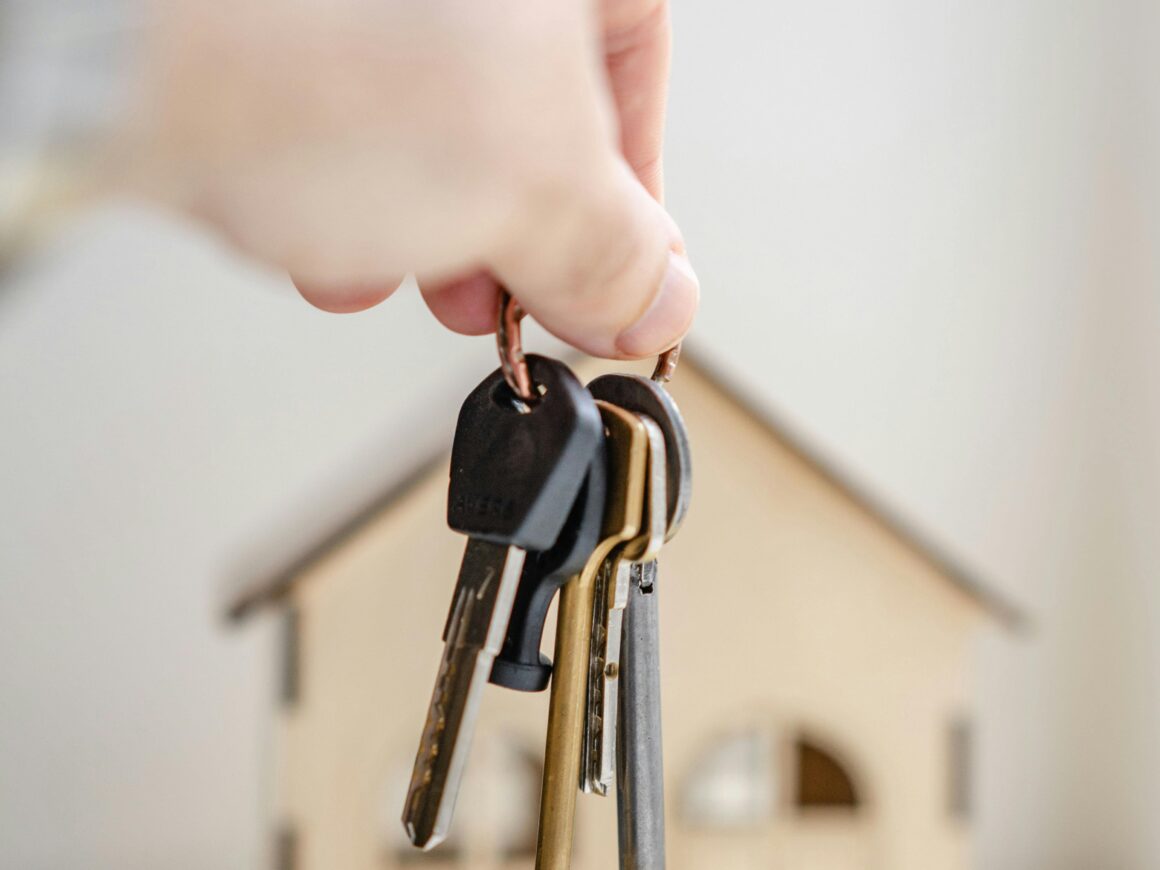Navigating the Home Loan Process in Virginia
Navigating the Home Loan Process in Virginia: As homebuyers prepare for one of life’s biggest purchases, understanding mortgage options specific to Virginia empowers making informed choices. This guide profiles loan types, requirements, and application best practices tailored for Old Dominion residents. Buying or refinancing a home is easier and you can feel more confident when you know what to expect.
Knowledge fuels pursuing the American dream of homeownership sustainably. Exploration illuminates accessible pathways aligned with individual budgets and timelines. Let’s uncover the insights empowering your journey – Virginia’s home financing starts here.
Conventional Loans
Most common, these loans require:
– 5-20% downpayment of home’s purchase price
– Credit scores 620 or above for most favorable terms
– Debt-to-income ratios generally 43% or less
– Private mortgage insurance (PMI) if less than 20% down
Fixed and adjustable rates make monthly payments predictable or adaptable.
FHA Loans
Benefiting first-time buyers with:
– Low 3.5% minimum downpayment
– Minimum credit score of 580
– Higher debt ratios allowed at 50%
– No PMI once reaching 22% equity
– Available for multifamily and manufactured homes
Lower barriers boost accessibility across markets.
Read Also: Should You Refinance Your Student Loans?
VA Loans
Exclusive to eligible active military, veterans and surviving spouses with:
– No downpayment requirement
– Competitive interest rates
– No PMI
– Funds may cover closing costs
Honoring sacrifices through ownership assistance programs statewide.
USDA Loans
Rural home loan options with:
– Moderate credit also accepted
– Identical fixed rates as conforming loans
– No downpayment, PMI or minimum credit scores
– Property must be in designated rural area
Sustaining communities where Americans desire to reside.
Application Process
To smoothly transition from browsing to closing:
– Get prequalified by a lender to determine affordable budget
– Work with realtor to identify suitable properties
– Apply including disclosures, verifications and appraisal fee
– Receive approval/denial within weeks for conventional loans
– Close on home within 60 days of accepted offer
Expert guidance navigates requirements professionally every step.
With informed choices, sustainable financing solutions empower Virginians’ homeownership hopes for generations. Your journey to roots in the Commonwealth awaits – let’s uncover the perfect match putting down yours.
Understanding Home Loans in Virginia
A home loan, commonly known as a mortgage, is a financial agreement between a borrower and a lender in which the borrower receives funds to purchase a home and agrees to repay the loan with interest over a specified period. In Virginia, prospective homeowners have access to various mortgage options tailored to different financial situations and homeownership goals.
Types of Home Loans Available in Virginia
1. Conventional Loans
Conventional loans are not insured or guaranteed by the federal government. These loans typically require a higher credit score and a larger down payment but offer competitive interest rates. Conventional loans are ideal for borrowers with a strong financial profile.
2. FHA Loans
Federal Housing Administration (FHA) loans are government-backed mortgages designed to assist first-time homebuyers and those with lower credit scores. FHA loans have lower down payment requirements (as low as 3.5%) and more lenient credit score standards.
3. VA Loans
Veterans Affairs (VA) loans are exclusive to eligible veterans, active-duty service members, and certain military spouses. VA loans offer significant benefits, including zero down payment, no private mortgage insurance (PMI), and competitive interest rates.
4. USDA Loans
The U.S. Department of Agriculture (USDA) offers loans to homebuyers in eligible rural and suburban areas. These loans feature zero down payment and reduced mortgage insurance costs, making them an excellent option for qualified borrowers in specific geographic locations.
5. Jumbo Loans
Jumbo loans exceed the conforming loan limits set by Fannie Mae and Freddie Mac. These loans are suitable for high-income borrowers purchasing luxury homes or properties in high-cost areas. They often require a larger down payment and a higher credit score.
Eligibility Requirements for a Home Loan in Virginia
While each loan type has its specific criteria, common eligibility requirements include:
- Credit Score: Lenders assess creditworthiness based on credit history. Conventional loans typically require a credit score of at least 620, while FHA loans may accept scores as low as 580.
- Debt-to-Income Ratio (DTI): Lenders evaluate the borrower’s ability to repay the loan by analyzing their DTI ratio. A lower DTI ratio (usually below 43%) improves loan approval chances.
- Employment and Income Stability: Consistent employment and a stable income are critical factors in securing a mortgage. Lenders require proof of income through pay stubs, tax returns, and bank statements.
- Down Payment: Depending on the loan type, the required down payment varies. Conventional loans often require at least 5%, whereas VA and USDA loans may allow zero down payment.
- Property Appraisal: Lenders require an appraisal to determine the home’s market value and ensure the loan amount aligns with the property’s worth.
Steps to Securing a Home Loan in Virginia
Step 1: Assess Your Financial Situation
Before applying for a mortgage, review your credit report, calculate your debt-to-income ratio, and determine how much you can afford for a down payment and monthly payments.
Step 2: Get Pre-Approved
A mortgage pre-approval involves a lender evaluating your financial details to determine the loan amount you qualify for. This step strengthens your position as a serious buyer when making offers on homes.
Step 3: Choose the Right Loan Type
Based on your financial situation and homeownership goals, select the most suitable loan type. Consider factors such as interest rates, loan terms, and down payment requirements.
Step 4: Find a Home and Make an Offer
Work with a real estate agent to find a property that meets your needs and budget. Once you find the right home, submit a competitive offer.
Step 5: Complete the Loan Application
Once your offer is accepted, formally apply for the mortgage. Submit required documents, including proof of income, employment verification, and asset statements.
Step 6: Home Appraisal and Inspection
A home appraisal ensures the property is worth the loan amount, while a home inspection identifies potential issues that may need to be addressed before closing.
Step 7: Loan Processing and Underwriting
The lender reviews all documentation and assesses your eligibility. The underwriting process verifies income, credit, and property details before final loan approval.
Step 8: Closing the Loan
Once the loan is approved, you will receive a closing disclosure outlining loan terms, interest rates, and closing costs. At the closing meeting, sign all necessary documents and finalize the transaction.
Virginia-Specific Home Loan Programs and Assistance
Virginia Housing (VHDA) Programs
Virginia Housing Development Authority (VHDA) offers various home loan programs, including:
- VHDA First-Time Homebuyer Programs: Assistance for first-time buyers with down payment grants and low-interest rates.
- VHDA Down Payment Assistance: Provides funds to help cover down payments and closing costs.
- VHDA Closing Cost Assistance: Financial aid to ease the burden of closing expenses.
Local Homeownership Assistance Programs
Many local governments in Virginia offer homebuyer assistance programs, including grants and low-interest loans. Programs vary by county and city, so check with local housing authorities.
Virginia First-Time Homebuyer Tax Credits
Eligible buyers may qualify for tax credits through Virginia’s Mortgage Credit Certificate (MCC) program, reducing federal tax liability and increasing affordability.
Common Pitfalls to Avoid in the Home Loan Process
- Not Checking Credit Reports Early: Address credit issues before applying for a loan.
- Making Major Purchases Before Closing: Avoid new debts that could alter your DTI ratio.
- Skipping Home Inspections: An inspection ensures the home is structurally sound and free from hidden defects.
- Not Shopping Around for Lenders: Compare mortgage rates and terms from multiple lenders to secure the best deal.
- Overlooking Additional Costs: Consider property taxes, insurance, maintenance, and HOA fees when budgeting.
Conclusion
Navigating the Home Loan Process in Virginia, Navigating the home loan process in Virginia requires careful planning and financial awareness. By understanding available loan options, eligibility criteria, and state-specific assistance programs, homebuyers can make informed decisions that align with their homeownership goals. Whether you are purchasing your first home or refinancing an existing mortgage, being well-prepared ensures a smoother and more successful homebuying journey in Virginia





